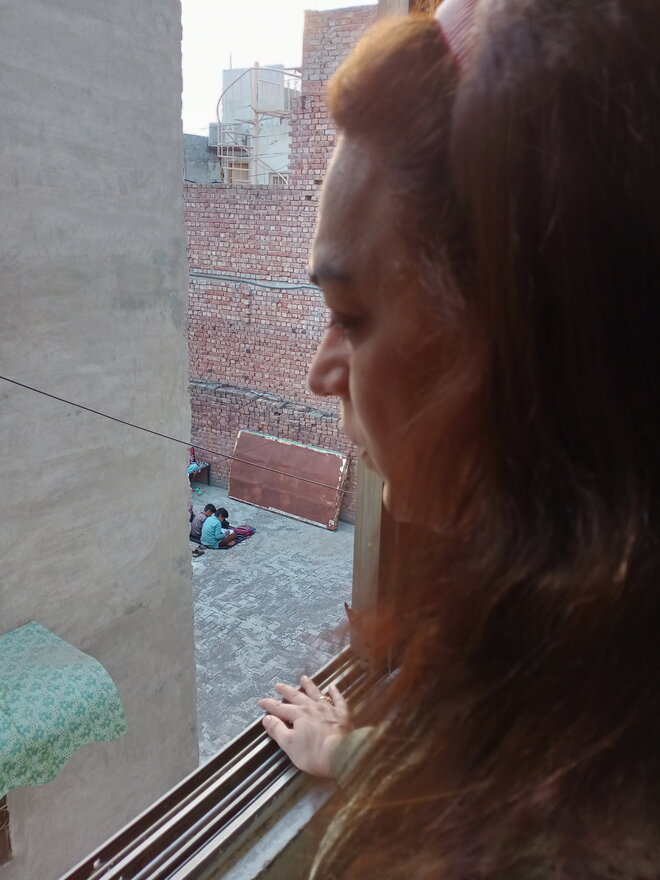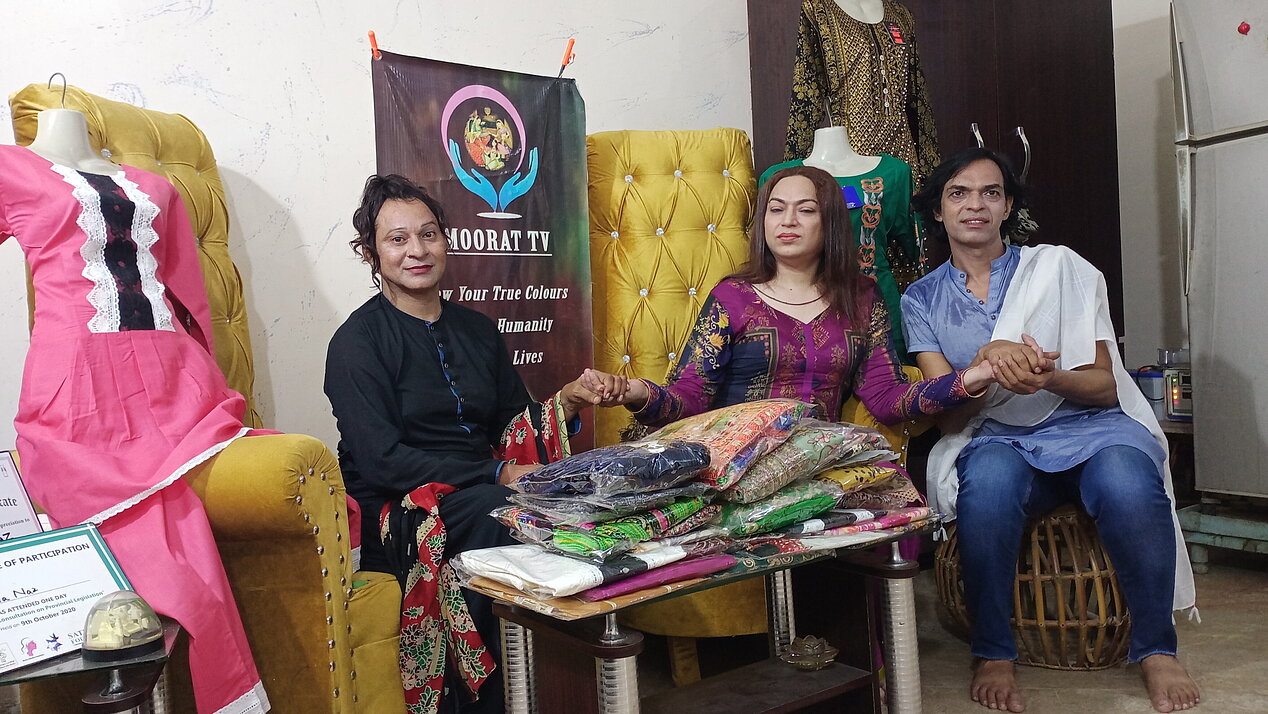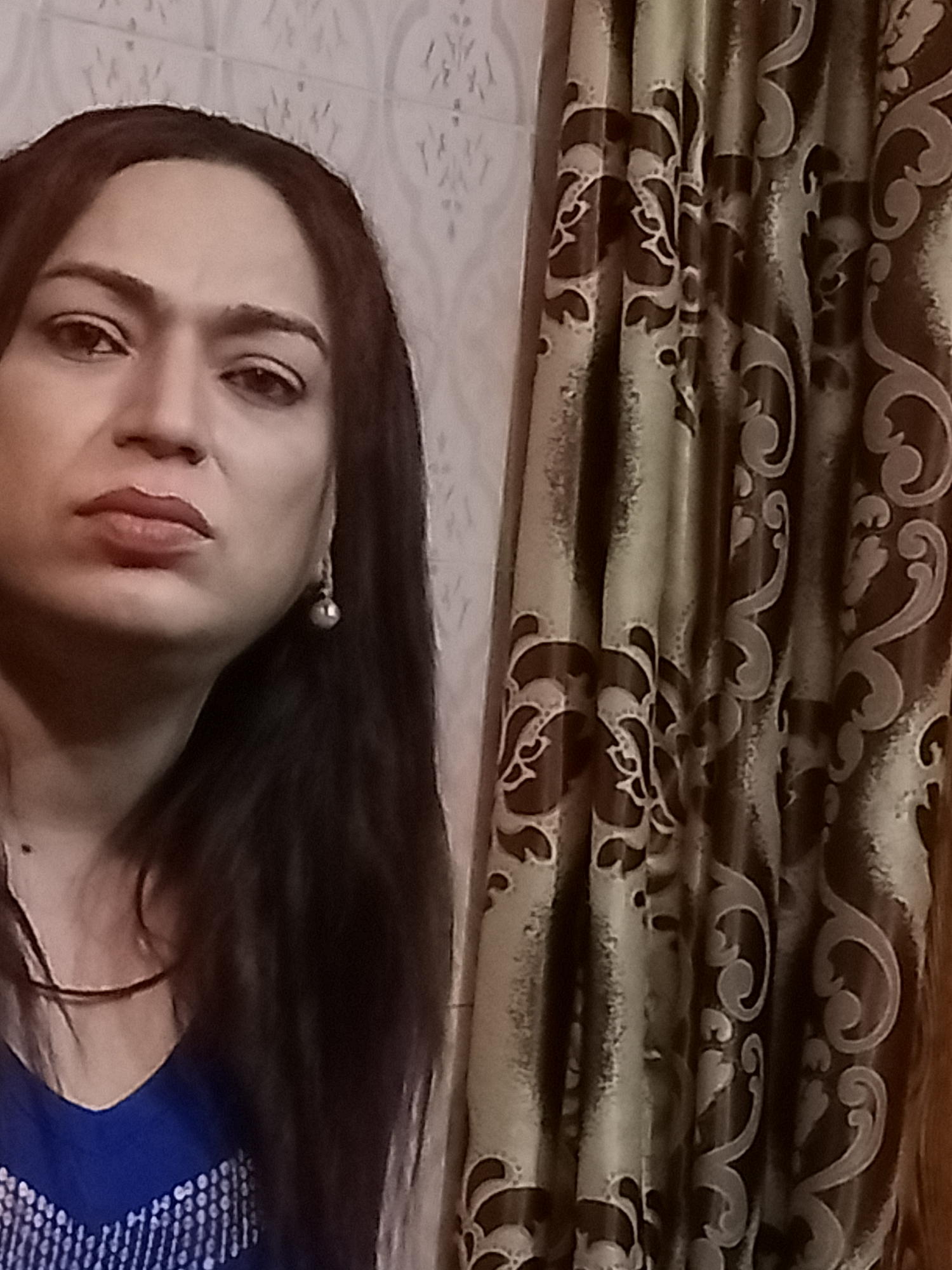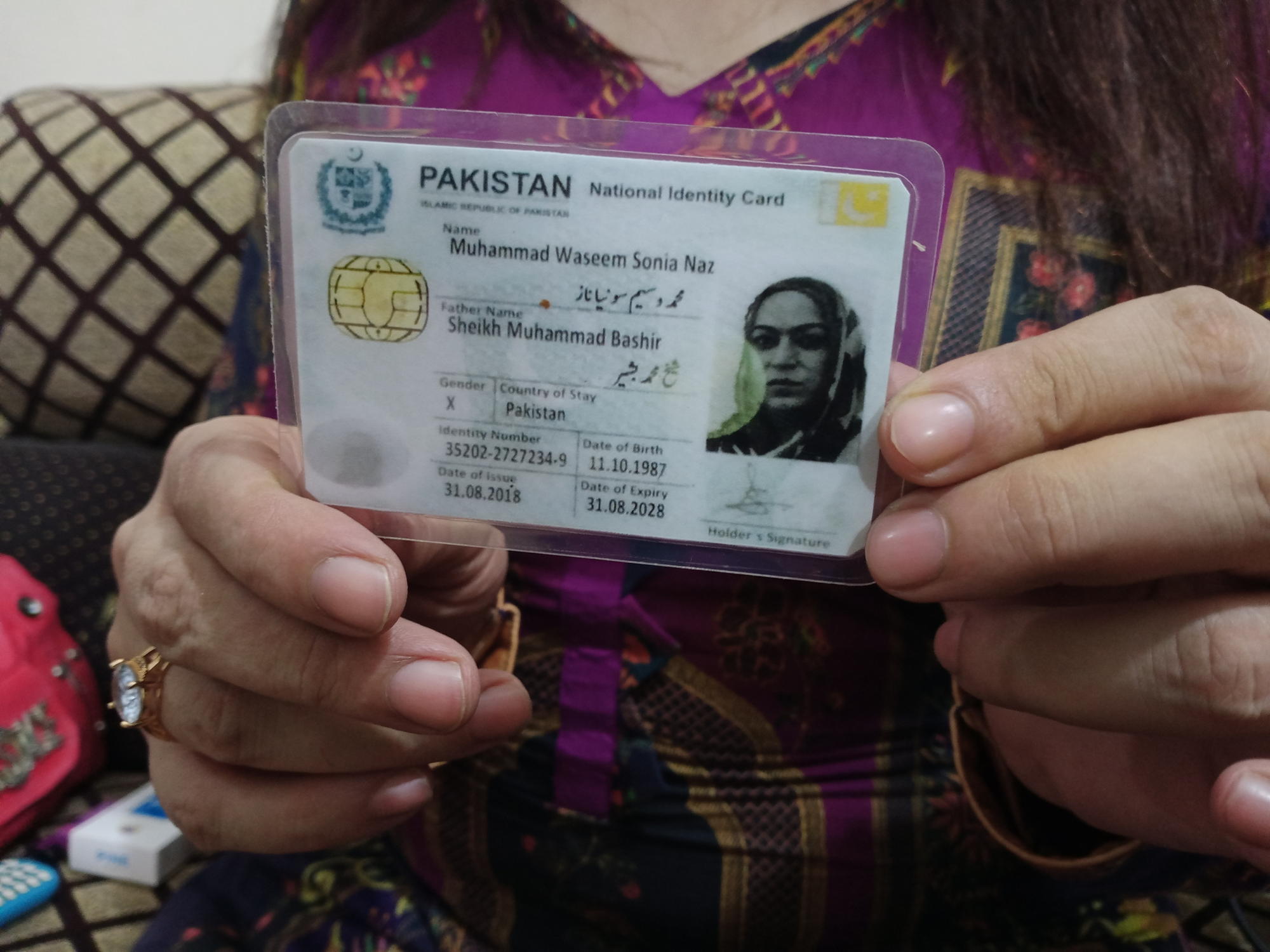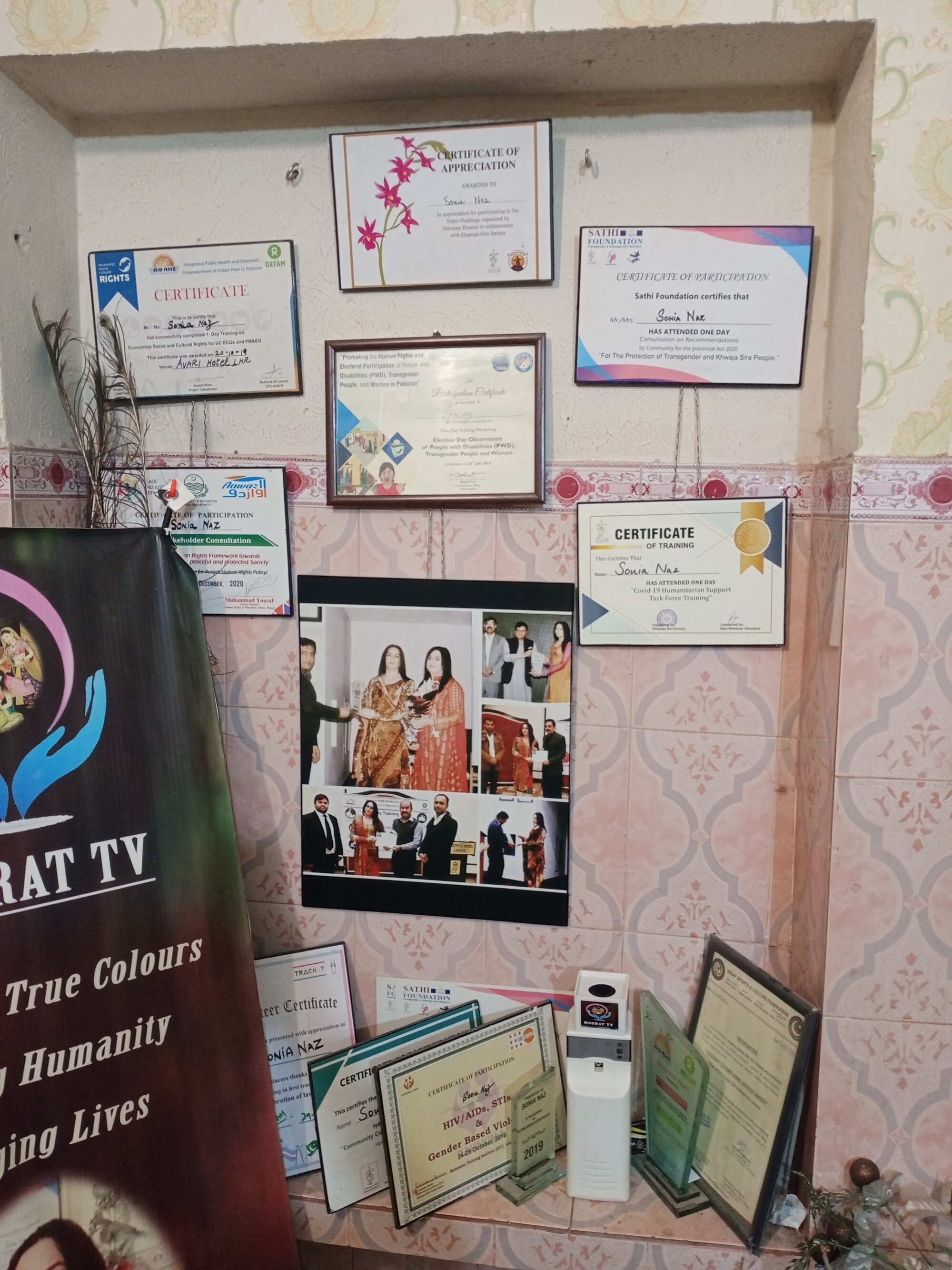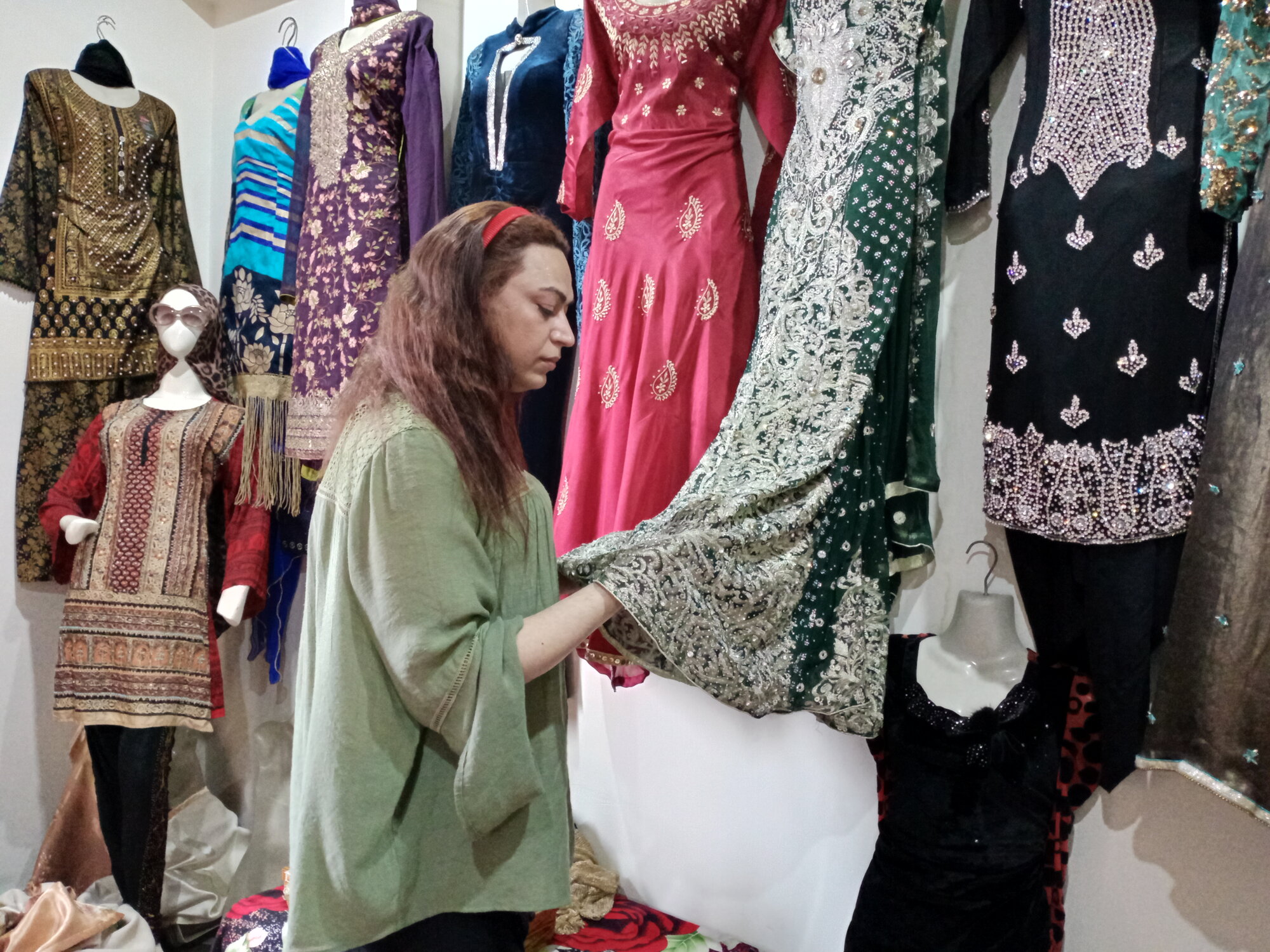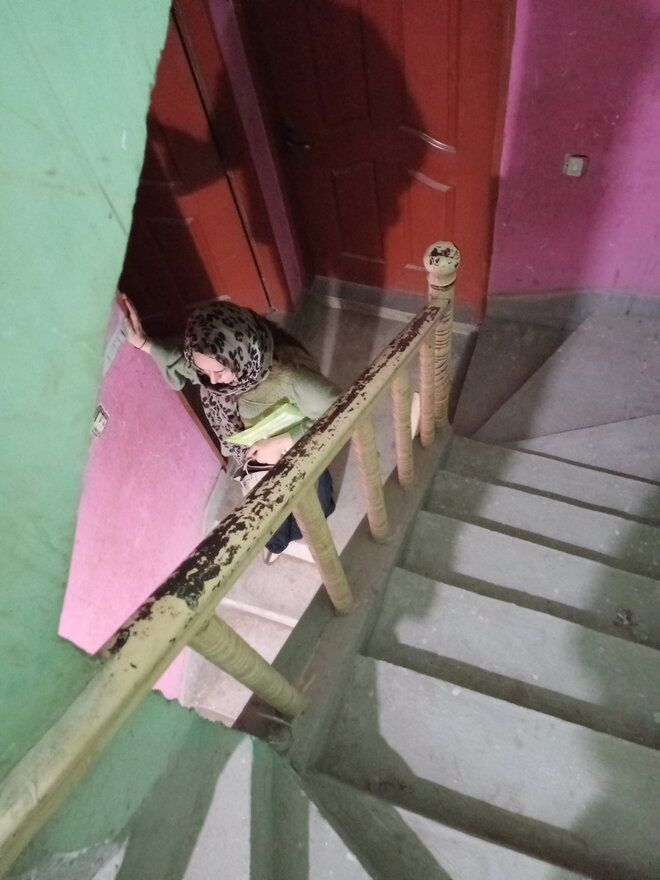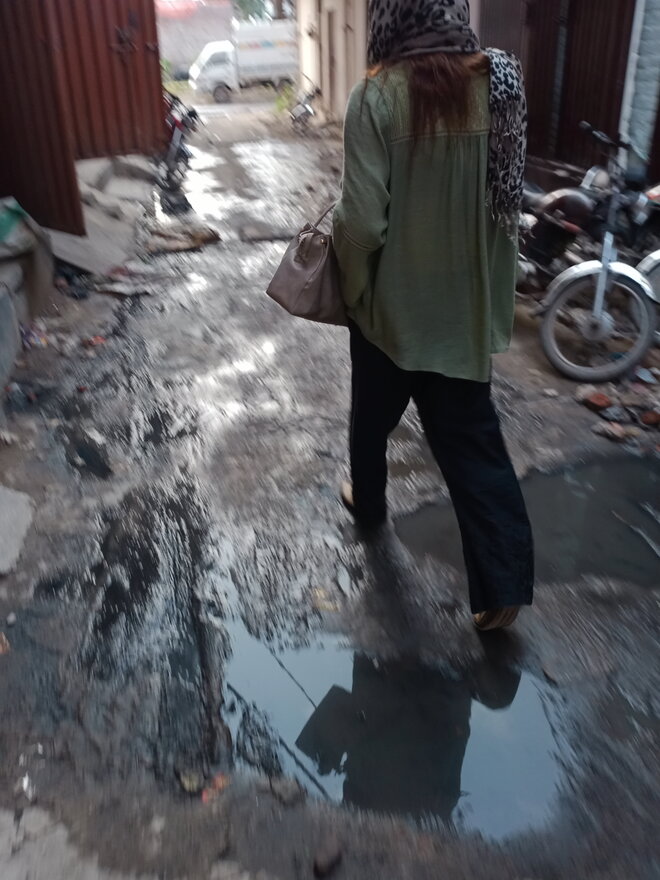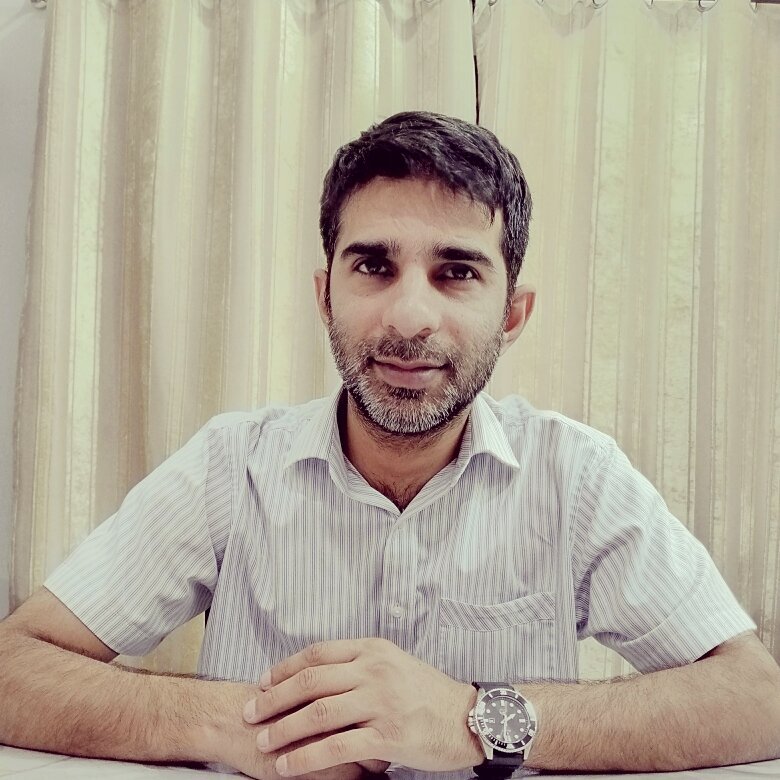Giving voice to Pakistan’s transgender community
In the closed world of Pakistani society, Sonia Naz is a strong and supportive voice for the transgender community - but it took a terrible attack to give her the strength to speak out.
One cold winter night in 2011, Sonia Naz and her female dancer friend, Nagina, were being driven through the streets of Kahna in a white Corolla '86 model, some 15 km away from the city of Lahore. They were abducted from a villager's marriage function where they had been invited as dancers.
Earlier that evening, three men came uninvited to the wedding function. One of them introduced himself as a police officer and threatened the guests on the basis of his said position, blaming Sonia and Nagina for spreading vulgarity, and forced them to go with them, saying, "There is another function where you have to go with us." Everyone was terrified and no one tried to help. Sonia began to realize that this night could turn out to be the worst nightmare of her life.
After 10 minutes of driving, Sonia and Nagina were forced out of the car in front of an old mansion. The kidnappers forced Sonia and Nagina towards the inside of the mansion. Sonia saw that it was a big building with many verandas and a big open hall.
Last minute escape
Only a dim bulb illuminated the surroundings. The kidnappers directed them towards the rooms, which had wooden doors and old-style chain locks visible from the outside. They unlocked one of the doors and forced them inside, where they found only two woven bedsteads and some grass lying on the floor. The person who introduced himself as a police officer asked Sonia and her friend to undress. They both resisted and Sonia, out of fear, told them that she was a “transgender woman”, not a girl. Upon hearing this, the so-called police officer lost control and started abusing and beating Sonia with his shoes. He kept on beating Sonia wildly for a good 10 minutes until one of the kidnappers whispered something in the so called-policeman’s ears and, after a little hesitation, all of the kidnappers went outside and locked the door. Sonia took this as an opportunity and began to beat desperately on the locked door, shouting for help. “I can only offer you water,” he said. Sonia begged him to let them go. The old man studied Sonia’s face and finally he gave way, “You resemble my daughter a lot. I will help you escape.” That was the last time Sonia danced for a living.
Sonia was born with a male body and a female soul. She grew up under the name of 'Waseem', a bright student studying psychology and English literature in high school.
Teachers told Sonia she had to change
She wanted to become a psychologist but due to bullying by teachers and students she left the education system without completing high school. Every single day there was a cartoon of her drawn on the blackboard, staring her in the face when she arrived in class, calling her different disrespectful names. Her teachers always blamed her and said, "Your classmates make fun of you because of how you walk and talk; if you don’t want to be made fun of, change yourself."
"What was my fault? I was just being myself; I did nothing wrong." Every time Sonia recalls the end of her educational life, her eyes fill with tears.
It wasn't until her cousin Zartaj's Mehandi, the traditional pre-wedding ceremony, when she saw a reflection of her true self. She - still Waseem - arrived wearing a black suit, looking sharp with her short haircut.
Her cousins were warm in their welcome. She wandered round the party and then her eyes settled on three transgender women. One transgender lady, Johee, approached her and said, "Girl, where did you come from?"
I can still feel those eyes looking directly into my soul. I am still surprised. No one - including myself - knew at that time that I was transgender, a 'Moorat'."
Sonia said about her eye-opening transgender encounter
An eye-opening encounter
The word 'Moorat' is derived from the subcontinental cultural history from the time of the Mughal emperors, who used to have transgenders in respectable positions. The transgender community prefers to call themselves 'Moorat'.
A few months after the wedding ceremony, still troubled by that moment, Sonia consulted three different religious clerics. They asked her to pray to God for help. While praying, Sonia decided to make an appointment with the doctor.
The doctor knew her. He had recently taken blood samples in order to study her hormones. As Sonia entered the clinic for the result, she could see the wrinkles of worry on the doctor’s forehead. He let Sonia settle into a chair, and said, "Waseem, you have 70 per cent female hormones; you are not male despite having a male body." Sonia burst into tears of joy and hugged the doctor tightly.
"The call from inside myself"
Sonia said the doctor then told her she had three choices, "First, we can inject you with male hormones, but that is going to be a long slow process," he said. "The second option is that you can go for an operation and become a female which, in my opinion, is risky and religiously incorrect, but it is your choice. Lastly, you can accept yourself as 'third gender'."
Sonia declared herself to be a transgender woman as per self-perceived identification. Knowing that her family was not going to accept her as a third gender, she decided to move out of her house. "I always had the mindset of a female; that was something no one could change, so I opt for the call from inside myself that I am a Moorat and I want to live my life like a Moorat and I want to earn respect with this identity." She told her family that she had found a job in another city.
According to Sonia, there are only three occupations open to transgender people in Pakistan: begging, dancing and sex work. She wasn't about to beg or get involved in sex work, so dancing was the option she chose.
She turned out to be very good at it and would go to different functions, just like the transgender women she saw at her cousin's wedding ceremony. Soon she was offered a place in a group of female professional dancers. It was during this time that she was kidnapped.
The kidnapper had said, "We are very influential and strong people; the police is with us and there is nothing you can do about us; we can do whatever we want to." Sonia became so disheartened by her life that she took poison.
From a situation of despair to becoming an activist
"I came by chance to see Sonia and found her lying unconscious on the floor, so I called a doctor who was a friend of mine and arranged a comfortable room with TV and other facilities for her," said the neighbour, Mr. Butt, who later became good friends with Sonia.
It was while recovering in bed that Sonia saw the news on TV about some transgender women protesting over one of their community members who had been victimised just like Sonia. At that moment, Sonia decided to become an activist.
Ms. Johee once said to me, "A transgender's life begins and ends on the road, and we have to dance and beg and become sex workers. This is fate of a Moorat."
"A transgender's life may begin on a road, but it need not necessarily also end there, and I am going to change that," Sonia said. "People in our community can sell jewellery and cosmetics. We can become makeup artists and run boutiques."
After she had recovered, Sonia was introduced to a TV producer who was making a documentary on transgender life. She fitted the role perfectly and appeared in the documentary, which introduced her to media circles.
Sonia was soon appearing in Urdu dramas like 'Ishqaway' and 'Mor Mahal'. The fame that came with appearing on television was too much for her family, who disowned her after watching her host a live morning show.
A face for transgender in Pakistan
One day after a very long time, while Sonia was on the television set, her mother called her and said, "Waseem, what have you become! We knew you would bring shame upon us one day. You are a disgrace to all of us; you are dead for us." After this call Sonia, learned through some connections that her mother had cut her out of the family inheritance.
Sonia accepted the rejection and started making efforts to find herself a steadier job. She began working as a transgender coordinator for various projects. "When I started coordination, I began learning about my own community. They were scattered and spread everywhere and it was only then that I realized that most of my community was living under miserable conditions and had no voice."
She started the 'Naz Boutique' in 2019 to give transgender people a place to sell their designs and become financially empowered. Initially, she received an overwhelming response from the media, but as time passed the boutique struggled. "I came to realize that people from the mainstream community would't buy clothes from me," she said.
Channeling empowerment for the community
This was when Sonia found her calling, starting her own YouTube channel. In June 2019, 'Moorat TV' was launched with the idea of economic welfare and social empowerment, "I stand for my community and my community stands for me." The channel combines many of her interests, connecting the transgender community, promoting its members and trying to create economic options for them.
In August 2021, Bobby, a 41-year-old transgender woman who was sick of abuse, reached out to Sonia after watching her on YouTube. Sonia invited Bobby to her place and gave her two dozen stitched clothes to sell. She connected her with a transgender tailor from her area. "My people believe in me and they approach me with the hope that I can do something for them. I can’t destroy their hopes because they only have me."
"They only have me"
Ten years after nearly dying on the floor of her apartment, Sonia has become an important voice for her community. In a recent interview, she was asked to give a message to the mainstream.
Please change your mindset about 'transgenders'. We are also humans, one of God's creatures. If you cannot call us by good names, don't call us by bad names; if you cannot make us happy, please don't make us sad. We have already been hurt."
Sonia
